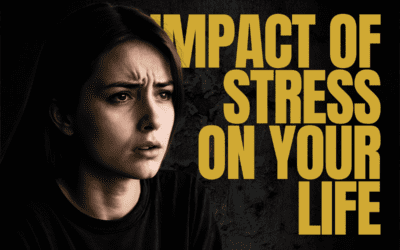What is a ketogenic diet? The low-carbohydrate, high-fat diet consumed for weight loss is known as the keto diet. To be more precise, the ketogenic diet reduces carbohydrate intake to less than 50 grams (g) per day, which includes proteins and fat. Vaguely speaking, on keto, one will get 70 to 80 per cent of their calories from fat, about 20 per cent from protein, and as little as 5 per cent from carbohydrates.
The diet is very difficult to follow, as, in a day, a single baked potato and one slice of bread are included. Few believe that the keto diet is the best way to reduce weight because it doesn’t involve any calorie counting. Though this all sounds fancy and trending right now, it was used to treat epilepsy, infertility, and type 2 Diabetes. While some find it useful, it’s not sustainable and takes away the joy and fun of eating.
In this blog, we will discuss the dangers associated with the keto diet.
- Keto Flu
As mentioned earlier, the keto diet includes a minimum intake of carbohydrates, i.e., fewer than 50 g per day, which can be very low compared to the normal body requirement. So because of a depletion in carbohydrate requirements, one may experience flu-like symptoms. Symptoms such as headaches, dizziness, fatigue, nausea, and constipation are observed due to electrolyte imbalances to adjust ketosis. Most people feel better within a few weeks of drinking a lot of water and eating sodium- and potassium-rich foods.
- Stress Kidney
Generally, in the keto diet, high-fat animal foods such as eggs, meat, and cheese are included because they don’t contain carbohydrates. If one keeps on eating a lot of this food, then one may have a risk of kidney stones. The reason is that a high intake of animal foods makes blood and urine more acidic, which leads to increased excretion of calcium in your urine. Some even believe that citrate binding to calcium can sometimes prevent kidney stone formation, and their reduced levels may sometimes raise the risk of developing them. It suggested that people with chronic kidney disease avoid the keto diet.
- Indigestion and Gut problems
As the keto diet restricts carbohydrates, the daily need can be met through fibre. Some of the richest sources of fibre are high-carbohydrate fruits, starchy vegetables, whole grains, and beans, which are exempt as they provide too many carbohydrates. This old-fashioned diet can lead to digestive discomfort and constipation. The fibre in the diet is even good to boost immunity, improve mental health, and decrease inflammation, but the keto diet’s lack of fibre may negatively affect gut bacteria.
- Nutrient Deficiency
The keto diet restricts whole grains and legumes, which may fail to provide recommended amounts of calcium, vitamin D, and minerals like magnesium and phosphorous. Very low-carb eating patterns like Atkins provided sufficient amounts for only 12 out of the 27 vitamins and minerals required for the body. If not provided regularly over some time, this may lead to nutrient deficiencies. Hence, clinicians recommend a keto diet with potassium, sodium, magnesium, calcium, omega-3 fatty acids, psyllium fibre, and vitamins B, C, and E.
- Low Blood Sugar
Keto diets have been shown to help manage blood sugar levels in people with diabetes. Keto may help decrease levels of haemoglobin A1c, a measure of average blood sugar levels. Individuals with type 1 diabetes may be at high risk of low blood sugar, which may lead to confusion, shakiness, fatigue, and sweating. Hypoglycemia may lead to coma and death if left untreated. If a diabetic patient is on insulin, the keto diet can prove to be dangerous.
- Damage Bones
People on the keto diet are prone to decreased bone strength due to a loss in bone mineral density. One study even suggests that the keto diet can decrease bone mineral density by 68%. Another study suggests that the keto diet has a significantly higher level of blood markers for bone breakdown. But to draw concrete conclusions, more prolonged studies suggesting the actual bone hazards need to be reviewed. Even a few studies suggest that muscle loss is observed, which directly puts pressure and friction on bones.
- Chronic Disease and Early Death
The keto diet may increase the risk of chronic illness, such as heart disease or cancer. A study in adults found that consuming animal-based low-carb diets leads to higher rates of death from heart disease and cancer. Some suggest that low and high carbs lead to high death rates.
As a takeaway from the blog, to follow the keto diet, one needs to consider their medical history, observe the aftereffects of the diet, and then make a decision. As common sense dictates, rather than limiting calorie uptake, balancing calorie intake and burning them daily is the best exercise that anyone can follow to stay healthy.








0 Comments